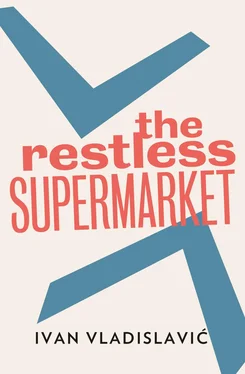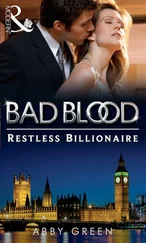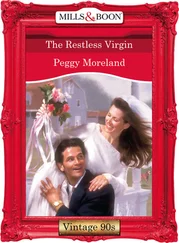I came to the Café more concerned than ever to get it clear in my head. I brought my notebook along for a change, in case I wished to make a few sketches or diagrams. I pictured the establishment as a set about to be struck. If only I could arrange it all in my mind, like a diligent stage manager, with every prop in place, perhaps the characters would troop on from the wings of memory and take a bow.
I was tempted to sit at No. 1, where I’d spent my very first hours at the Europa. But as I’ve already indicated, sentimentality irks me, especially the American variety, which is descended from the Irish. I sat instead at my usual place, the round table where Spilkin and I first shared our thoughts on the crossword puzzle, which had been the great love of his life until grosser affections supplanted it, and ‘The Proofreader’s Derby’, which was and always will be mine. This table was No. 2. A signpost, a relic saved through my intervention, declared the fact (all the others had long since been filched, for reasons one can only guess at).
My eye was drawn to the city on the wall, to the walled city of Alibia, where I had roamed so often in my imagination.
In the foreground was a small harbour, with a profusion of fishing boats and yachts, and a curve of beach freckled with umbrellas. The palm-lined promenade cried out for women twirling parasols and old men nodding in Bath chairs with rugs over their knees. There were wharves and warehouses too, by no means quaint but necessarily somewhat Dickensian, and silos fat with grain, and tower cranes with their skinny shins in the water. Houses were heaped on the slopes behind, around narrow streets and squares. Despite the steepness of the terrain, there were canals thronged with barges, houseboats and gondolas. On one straight stretch of canal, evidently frozen over, one expected to see skaters in woollen caps racing to the tune of a barcarole. In the squares, there were outdoor cafés and neon signs advertising nightclubs; but in the windows of the houses up above, oil-lamps were burning. The baroque steeple of St Cloud’s, intricately iced, measured itself against glazed office blocks of modest proportions, while in the east a clutch of onion domes had been harrowed from the black furrow of the horizon. A Slav would feel just as at home there as a Dutchman. It was a perfect alibi, a generous elsewhere in which the immigrant might find the landmarks he had left behind. I had seen pointed out St Peter’s and St Paul’s, the Aegean and the Baltic. A receptionist at the German Consulate had shown us a bridge over the Neckar; and once an engineer from Mostar, then painting traffic signs for Roads and Works, had pinpointed the very house in which he had been born. His poor mother still lived there, with mortar-bombs raining down all around her.
What did Alibia mean to me? Certainly it was not ‘home’. I am a true Johannesburger, because I was born within sight of the Hillbrow Tower, our very own Bow Bells — or so Spilkin used to say. Of course, this was long before the Johannes Gerhardus Strijdom Tower (properly) was built, but he said it had retrospective effect: had it been standing at the time of my birth, I would have seen it from my crib.
Alibia was close to my heart for a different reason, an egocentric one, I suppose: in the middle of the city, bulging above the skyline and overhung by a dirty brown cloud, was a hill whose bumpy summit looked auspiciously like the crown of my own head. My personal Golgotha.
I came into the world, as many do, with a healthy head of hair. In my case, it was black and enviably thick (but not a thatch , like Empty Wessels’s). As a boy, I wore it with a parting in the middle, and as a young man, brushed straight back in the fashion of the day, which is how it stayed. In my prime, I cultivated a windswept appearance, with the tousle combed in and the loose ends held in place with oil. I fancied that this hairstyle reflected my character rather well: quick-witted and sporty, tidy but not without flair. However, as my hairline receded, which it began to do during my mid-twenties, I saw coming into view a skull to make a phrenologist’s fingertips itch. It was singularly bumpy, roughly-hewn and battered-looking, with a pronounced mound right on top. The most dismaying revelation was a bluish blemish on the occipital plate, around three o’clock, which looked a bit like a raisin embedded in the sugared icing on a custard slice. My marchpane pate. Over the years, as the denuding of my head proceeded, several more of these partly submerged excrescences appeared. Another four to be precise: two more occipitals at eight and nine o’clock and a brace of cranials at twelve on the dot and half past five. But none was more disconcerting than the first. I went to see a dermatologist about it, a Dr Zinn, who was as bald as a coot himself, and he tugged on my forelock, then extant, and told me not to worry. Easier said than done. It was as surprising to me that I should be thinking inside this malformed and discoloured lump as it is to find white flesh inside a fractured coconut.
From much massaging with various preparations in an attempt to revivify the follicles, my fingertips had memorized every square inch — as we used to say then — of my scalp. The digits have a surprisingly long memory, no less enduring than the eyes. I knew my dome’s shape exactly, and strange to say, it perfectly matched the hill that beetled over Alibia. Indeed, that hill might have been a study of my head, cast into relief against a permanent sunset, with the features below lost in a clown’s ruff of staircases, closes and wynds.
‘Yes yes.’ The echo chamber slumped down in one chair and propped his plaster cast on another. Seeing the toes of Wessels that close to the table top made my stomach churn. ‘Peace & luv’ had been printed on the cast in red ink, next to a drawing of a bird. Glory be. The duv of peace, the pidgin. I averted my eyes.
‘How’s it?’
‘Can’t complain,’ and so on. I don’t know why I bother. One may as well speak to a plank.
Then a spar of sense sluiced out on the bilge water: ‘I had a great idea.’
‘You’re moving back to Halfway House?’
‘Serious. Let’s have a party, before we close down here. A farewell.’
‘What for?’
‘To say fare thee well, what else? It’ll be tough not seeing the guys any more.’
‘I’ll be only too pleased to see the back of this mob, if that’s who you mean. I won’t even grace them with a goodbye.’ Errol and Co were lounging on the balcony. Goodbye wouldn’t suit them, godless heathen that they were. They were always shouting chow-chow at one another like a bunch of jinricksha men.
‘Not a goodbye bash,’ he said brightly. ‘A get-together, a reunion. We’ll ask all the old faces.’
This was complex reasoning for Wessels — so early in the day too. I examined his nose, the surest barometer of his state of inebriation the night before. Strawberry this morning, a full three degrees — raspberry, ruddy, Rudolph — from the top of the scale. And out came the Paul Reveres. When he was really the worse for wear, it was Peter Stuyvesant. Perhaps he’d missed the bottlestore last night after all? Those old faces I had spent the night thinking about, those speechless heads with fading features, drifted through my mind.
‘The old faces on their own might be awkward,’ I said. ‘You’d have to ask them to bring their old bodies along.’
‘Serious Aub.’
‘You could append it to the invitation, it’s quite acceptable: BYOB.’ Suitably baffled. I hate being called Aub.
‘Wouldn’t it be nice to see everyone again − Mevrouw Bonsma and them. Merlé. And Bogey — I wonder where he’s at? Mrs Mav.’
‘I honestly can’t imagine that Mrs Mavrokordatos would want to come back here. It would rake up too many painful memories. It would break her heart to see what the place has become. To see what we’ve become.’
Читать дальше












